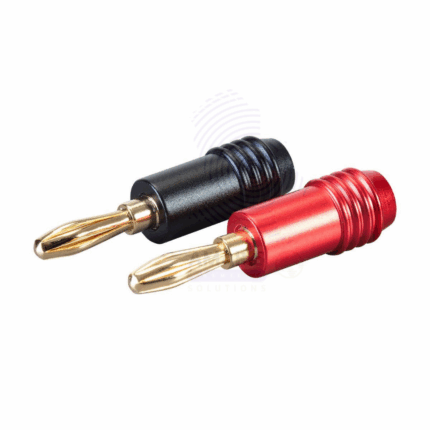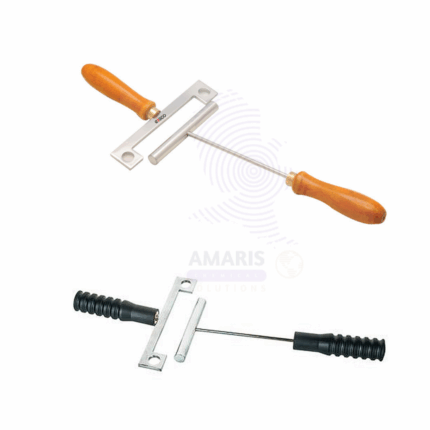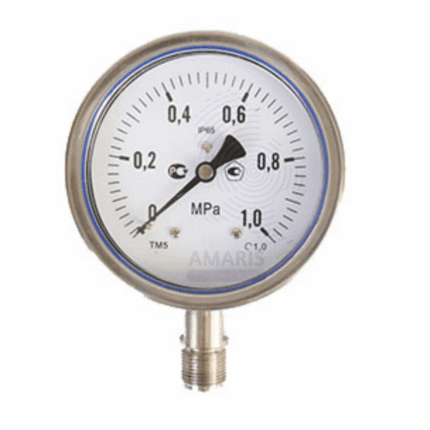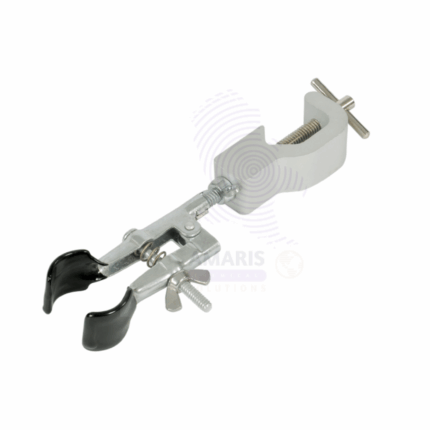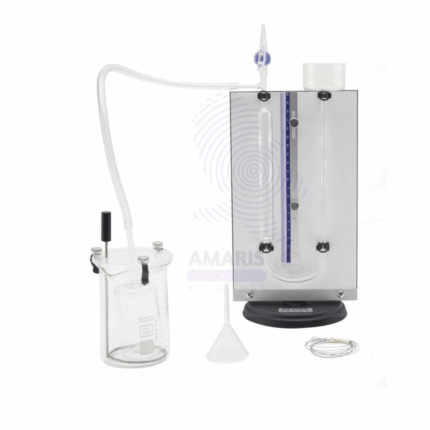“Banana Plug” has been added to your cart. View cart

Italtext Premium Extra Pure
$ 17.30 Original price was: $ 17.30.$ 17.21Current price is: $ 17.21.

Lead Shot Extra Pure
$ 18.00 Original price was: $ 18.00.$ 17.87Current price is: $ 17.87.
centrifudge electrical
$ 185.89 Original price was: $ 185.89.$ 185.78Current price is: $ 185.78.
Whatsapp Order
The Electrical Centrifuge is a laboratory instrument designed to separate components of mixtures based on density by spinning samples at high speeds. Equipped with an electric motor, it offers controlled and consistent centrifugal force, enabling efficient separation of solids from liquids, blood components, or chemical substances. Widely used in medical, research, and industrial laboratories, this device ensures precise sample processing with adjustable speed and timer settings. Its robust design includes safety features such as imbalance detection and secure lids to protect users during operation.
Description
Table of Contents
Toggle
centrifudge electrical
Primary Uses
- Laboratory Applications
- Separation of blood components such as plasma, serum, and red blood cells.
- Isolation of precipitates from solutions in chemical analysis.
- Clarification of suspensions for research and diagnostic purposes.
- Preparation of samples for microscopy and further testing.
Secondary Uses
- Industrial Applications
- Processing of emulsions and suspensions in pharmaceutical manufacturing.
- Separation of oil and water mixtures in petrochemical labs.
- Quality control for food and beverage industry samples.
- Wastewater treatment analysis and sample preparation.
KEY PRODUCT FEATURES
1. Basic Identification Attributes
- Product Type: Electrical Centrifuge
- Motor Type: Electric, variable speed
- Function: Separation of components based on density via centrifugal force
2. Physical & Chemical Properties
- Construction: Durable metal and plastic housing
- Speed Range: Typically 1,000 – 15,000 RPM (varies by model)
- Capacity: Multiple rotor sizes and tube compatibility
- Safety Features: Lid lock, imbalance detection
3. Safety & Hazard Attributes
- Mechanical Hazards: Risk of injury from moving parts if improperly handled
- Electrical Hazards: Must be used with proper grounding and electrical safety
- Noise Level: Moderate operational noise
4. Storage & Handling Attributes
- Store in a clean, dry laboratory environment
- Handle with care during rotor installation and removal
- Follow manufacturer guidelines for maintenance and cleaning
5. Regulatory & Compliance Attributes
- Compliant with laboratory safety and electrical standards
- Manufactured according to ISO and CE certifications (depending on model)
6. Environmental & Health Impact
- Energy-efficient motors available on some models
- Materials recyclable according to local regulations
SAFETY HANDLING PRECAUTIONS
Safety Handling Precautions
- Always ensure lid is securely closed before operation
- Do not operate with unbalanced samples
- Use personal protective equipment (PPE) as required
First Aid Measures
- For mechanical injury, provide standard first aid and seek medical attention if necessary
- In case of electrical shock, disconnect power and seek immediate medical help
Firefighting Measures
- Fire Hazard: Low risk; electrical fire possible if malfunction occurs
- Extinguishing Media: Use CO2 or dry chemical fire extinguishers
- Special Precautions: Disconnect power supply before firefighting
Related products
Banana Plug
The Banana Plug is a single-wire electrical connector used to join wires to equipment in testing, measuring, and laboratory applications. It features a cylindrical metal pin with a spring mechanism to ensure a secure and reliable connection. The plug is widely used for quick and easy connections in electronic testing devices, audio systems, and laboratory instruments. Made from high-conductivity metals such as brass or copper and often gold- or nickel-plated for corrosion resistance, the Banana Plug provides consistent electrical conductivity and durability.
Bar and Gauge Apparatus
The Bar and Gauge Apparatus is a precision instrument used for measuring and comparing lengths, thicknesses, and distances in laboratory and industrial environments. It typically consists of calibrated bars, gauges, and scale components designed for accuracy in dimensional measurements. This apparatus is essential for quality control, calibration tasks, and research applications requiring precise measurement standards. Manufactured from durable materials such as stainless steel or hardened alloys, the Bar and Gauge Apparatus ensures reliable performance and longevity under regular use.
Bourdan Gauge
The Bourdon Gauge is a mechanical pressure measuring instrument widely used to measure medium to high pressure of gases and liquids in various laboratory and industrial applications. It consists of a curved, hollow metal tube which straightens as pressure increases, causing a pointer to move over a calibrated scale for easy reading. Known for its durability, reliability, and precision, the Bourdon Gauge is essential in pressure monitoring, process control, and safety systems. It operates without electrical power, making it ideal for harsh environments.
Burette Clamp
The Burette Clamp is a laboratory apparatus designed to securely hold burettes in place during titration and other volumetric procedures. Made from durable materials such as metal with rubber or plastic-coated grips, it ensures stability and prevents slippage or breakage. The clamp typically attaches to a retort stand or support rod, allowing hands-free operation and precise liquid dispensing.
Charles law apparatus
Product Description
Charles Law Apparatus is a scientific device used to demonstrate and study Charles's Law, which states that the volume of a gas is directly proportional to its temperature at constant pressure. The apparatus typically consists of a sealed container connected to a graduated tube or syringe, allowing measurement of gas volume changes as temperature varies. It is widely used in physics and chemistry laboratories for educational and experimental purposes, helping users understand gas behavior under thermal changes.
clinostat clock type
The Clinostat Clock Type is a precision laboratory instrument designed to simulate microgravity conditions by continuously rotating biological samples or small objects along a horizontal axis. This rotation counteracts the effect of gravity, allowing researchers to study the effects of weightlessness on plant growth, cell cultures, and other biological specimens. Constructed with durable materials and calibrated for smooth, consistent rotation, the Clinostat Clock Type is widely used in botanical, microbiological, and space biology research.
Desiccators with Knob
Desiccators with Knob are specialized laboratory containers designed to preserve moisture-sensitive materials by providing a dry, airtight environment. Constructed from high-quality borosilicate glass or durable plastic, these desiccators feature a tightly sealed lid with a central knob for easy handling and secure closure. The knob allows convenient lifting and placement of the lid without compromising the internal vacuum or dry atmosphere. Commonly used with desiccant agents like silica gel, they are ideal for drying samples, storing hygroscopic chemicals, or preventing atmospheric contamination. Desiccators with knobs are indispensable in laboratory, pharmaceutical, and industrial settings for maintaining low-humidity conditions during experiments or storage.
PENCIL JOCKEY
Product Description
A Pencil Jockey is a small laboratory tool designed to securely hold and manipulate pencils or fine writing instruments during detailed drawing, drafting, or note-taking tasks. Commonly used in scientific laboratories, drafting rooms, and educational settings, it ensures precision and comfort during use. Typically made from lightweight, durable materials, the pencil jockey facilitates steady control and prevents slippage, especially when working with fine sketches, annotations, or measurements.


 Preservatives(food)
Preservatives(food) Flavor Enhancers
Flavor Enhancers Acidulants
Acidulants Sweeteners
Sweeteners Antioxidants
Antioxidants Colorants(food)
Colorants(food) Nutraceutical Ingredients (food)
Nutraceutical Ingredients (food) Nutrient Supplements
Nutrient Supplements Emulsifiers
Emulsifiers
 Collectors
Collectors Dust Suppressants
Dust Suppressants Explosives and Blasting Agents
Explosives and Blasting Agents Flocculants and Coagulants
Flocculants and Coagulants Frothers
Frothers Leaching Agents
Leaching Agents pH Modifiers
pH Modifiers Precious Metal Extraction Agents
Precious Metal Extraction Agents
 Antioxidants(plastic)
Antioxidants(plastic) Colorants (Pigments, Dyes)
Colorants (Pigments, Dyes) Fillers and Reinforcements
Fillers and Reinforcements Flame Retardants
Flame Retardants Monomers
Monomers Plasticizers
Plasticizers Polymerization Initiators
Polymerization Initiators Stabilizers (UV, Heat)
Stabilizers (UV, Heat)
 Antifoaming Agents
Antifoaming Agents Chelating Agents
Chelating Agents Coagulants and Flocculants
Coagulants and Flocculants Corrosion Inhibitors
Corrosion Inhibitors Disinfectants and Biocides
Disinfectants and Biocides Oxidizing Agents
Oxidizing Agents pH Adjusters
pH Adjusters Scale Inhibitors( water)
Scale Inhibitors( water)
 Antioxidants(cosmetic)
Antioxidants(cosmetic) Emollients
Emollients Fragrances and Essential Oils
Fragrances and Essential Oils Humectants
Humectants Preservatives
Preservatives Surfactants(cosmetic)
Surfactants(cosmetic) Thickeners
Thickeners UV Filters
UV Filters
 Fertilizers
Fertilizers Soil Conditioners
Soil Conditioners Plant Growth Regulators
Plant Growth Regulators Animal Feed Additives
Animal Feed Additives Biostimulants
Biostimulants Pesticides (Herbicides, Insecticides, Fungicides)
Pesticides (Herbicides, Insecticides, Fungicides)
 Active Pharmaceutical Ingredients (APIs)
Active Pharmaceutical Ingredients (APIs) Excipients
Excipients Solvents(pharmaceutical)
Solvents(pharmaceutical) Antibiotics
Antibiotics Antiseptics and Disinfectants
Antiseptics and Disinfectants Vaccine Adjuvants
Vaccine Adjuvants Nutraceutical Ingredients (pharmaceutical)
Nutraceutical Ingredients (pharmaceutical) Analgesics & Antipyretics
Analgesics & Antipyretics
 Analytical Reagents
Analytical Reagents Solvents(lab)
Solvents(lab) Chromatography Chemicals
Chromatography Chemicals Spectroscopy Reagents
Spectroscopy Reagents microbiology-and-cell-culture-reagents
microbiology-and-cell-culture-reagents Molecular Biology Reagents
Molecular Biology Reagents Biochemical Reagents
Biochemical Reagents Inorganic and Organic Standards
Inorganic and Organic Standards Laboratory Safety Chemicals
Laboratory Safety Chemicals Specialty Laboratory Chemicals(Special Laboratory Equipment)
Specialty Laboratory Chemicals(Special Laboratory Equipment)
 Demulsifiers
Demulsifiers Hydraulic Fracturing Fluids
Hydraulic Fracturing Fluids Scale Inhibitors(oil)
Scale Inhibitors(oil) Surfactants(oil)
Surfactants(oil) Drilling Fluids
Drilling Fluids
 Dyes and Pigments
Dyes and Pigments Bleaching Agents
Bleaching Agents Softening Agents
Softening Agents Finishing Agents
Finishing Agents Antistatic Agents
Antistatic Agents
 Admixtures
Admixtures Waterproofing Agents
Waterproofing Agents Sealants and Adhesives
Sealants and Adhesives Curing Compounds
Curing Compounds Concrete Repair Chemicals
Concrete Repair Chemicals Anti-Corrosion Coatings
Anti-Corrosion Coatings
 Surfactants(cleaning)
Surfactants(cleaning) Builders
Builders Enzymes
Enzymes Solvents (Cleaning)
Solvents (Cleaning) Fragrances
Fragrances
 Electronic Chemicals
Electronic Chemicals Catalysts
Catalysts Lubricants
Lubricants Photographic Chemicals
Photographic Chemicals Refrigerants
Refrigerants Automotive chemicals
Automotive chemicals Pyrotechnic Chemicals
Pyrotechnic Chemicals
 Biodegradable Surfactants
Biodegradable Surfactants Bio-based Solvents
Bio-based Solvents Renewable Polymers
Renewable Polymers Carbon Capture Chemicals
Carbon Capture Chemicals Wastewater Treatment Chemicals
Wastewater Treatment Chemicals
 Pigments
Pigments Solvents(paint)
Solvents(paint) Specialty Coatings
Specialty Coatings Binders/Resins
Binders/Resins Additives
Additives Driers
Driers Anti-Corrosion Agents
Anti-Corrosion Agents Functional Coatings
Functional Coatings Application-Specific Coatings
Application-Specific Coatings
 Fresh Herbs
Fresh Herbs Ground Spices
Ground Spices Whole Spices
Whole Spices Spice Blends
Spice Blends Dried Herbs
Dried Herbs
 Leavening Agents
Leavening Agents Dough Conditioners
Dough Conditioners Flour Treatments
Flour Treatments Fat Replacers
Fat Replacers Decoratives
Decoratives Preservatives(baking)
Preservatives(baking)
 Plasticizers & Softeners
Plasticizers & Softeners Reinforcing Agents
Reinforcing Agents Adhesion Promoters
Adhesion Promoters Vulcanizing Agents
Vulcanizing Agents Antidegradants
Antidegradants Blowing Agents
Blowing Agents Fillers & Extenders
Fillers & Extenders Accelerators & Retarders
Accelerators & Retarders

